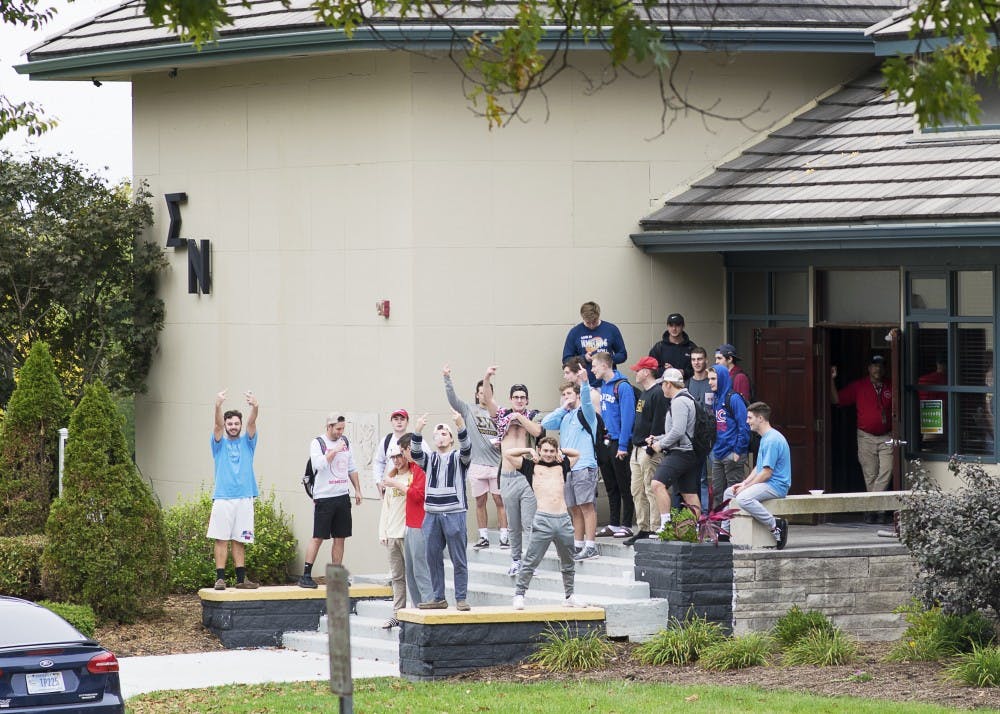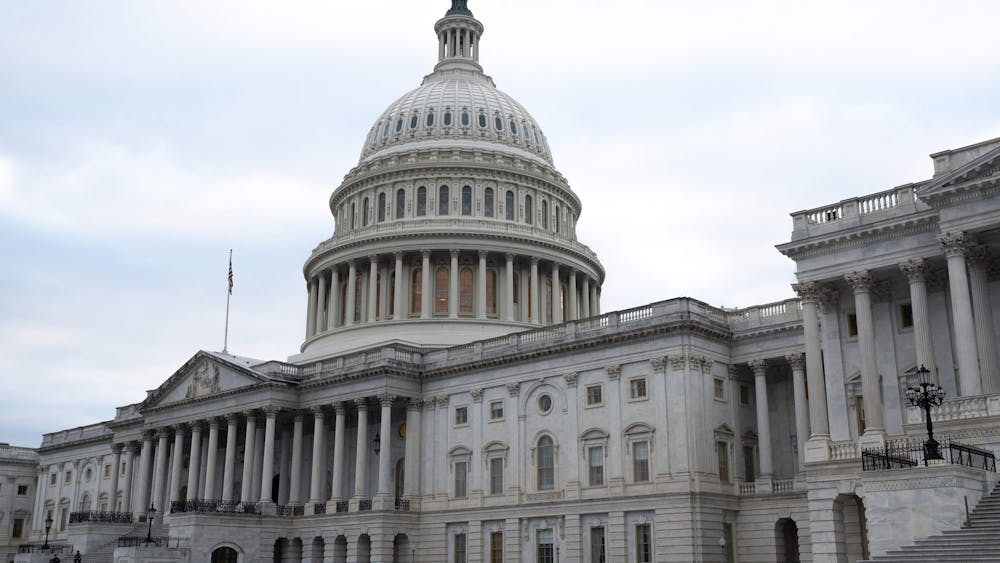Each year, the Office of Student Conduct places various sanctions on student organizations. Although all organizations sanctioned in the 2018-2019 school year so far have been chapters of greek life organizations, it can happen to any of the more than 750 student organizations at IU.
Sanctions are not punishments but rather a step toward solving a problem, said Libby Spotts, associate dean and director of student conduct.
“We want to address problems at all levels,” she said. “We don’t want to wait until it gets out of hand.”
Cease and Desist
Cease and desist is not a sanction, but rather a preventative action, Spotts said. Organizations are placed on cease and desist to prevent anything dangerous from happening while under investigation, she said.
Investigations can begin because of alleged hazing or sexual misconduct, for example.
While an organization is placed on cease and desist, members cannot have meetings or activities. In the case of a greek chapter, no new members can be recruited during this step, Spotts said.
“It allows us to look into their situation without the ongoing threat of harm,” Spotts said. “It’s like when everyone needs to stop for a minute until we figure stuff out.”
Warning
Often, before organizations are sanctioned, they receive a warning. Warnings can be announced when organizations violate university policy or the IU Code of Student Rights, Responsibilities and Conduct.
“It’s like, ‘Hey, this wasn’t a severe incident, but it was a violation of code,’” Spotts said.
Any rule an IU student is expected to follow, student organizations are expected to do the same, she said. Requirements range from respecting the dignity of others to maintaining academic integrity.
Disciplinary Probation
Organizations are placed on disciplinary probation for a certain time period when they are not in good standing with the university, Spotts said. If they can complete a series of requirements decided between the organization and the university, then they can expect the probation to be lifted at the end of the time period.
This series of requirements differs from one organization to another but can include actions such as attending educational classes or constructing a safety plan.
If the requirements are not met or the organization is involved in any other kind of misconduct, then it will be reassessed and might be placed on a more severe sanction, such as suspension or expulsion.
Social Restriction
Social restrictions temporarily prevent organizations from organizing or participating in events, parties or ceremonies. For example, a greek chapter on social restriction cannot participate in the Greek Assessment and Awards Program, where fraternity and sorority members honor exceptional chapters and individuals, according to the Student Affairs website.
Spotts said social restrictions mean a privilege is being taken away.
The extent of social restrictions can vary based on each organization’s situation, she said. Some organizations are only restricted from some events, and some are completely banned.
Campus Restriction
This sanction is very similar to social restriction, Spotts said, but it prohibits either some or all university activities specifically.
Spotts said if an organization is placed on campus restriction, members might not be able to participate in the Student Involvement Fair. This can hinder their chances to recruit new members.
Deferred Suspension
Sometimes, organizations will be placed on deferred suspension before being placed on actual suspension. Deferred suspension means the organization has done something wrong and will receive a lesser sanction but has shown it is taking steps to ensure the wrongdoing will not happen again, Spotts said.
“It’s like taking a suspension and putting it on a shelf,” she said.
This sanction is similar to disciplinary probation in that organizations must meet a set of requirements and not have any other violations during a certain timeframe. Otherwise, they will be suspended immediately.
Organizations can be placed on deferred suspension regardless of the severity of their violations, Spotts said.
Suspension
If an organization is suspended, it will be forced to stop all activities and disband.The length of suspension varies depending on the situation but will be proposed by the Administrative Conference Panel and decided by the dean of students, according to the Student Affairs website.
Expulsion
If an organization is expelled, it will have to stop all activities and be permanently banned from IU.






